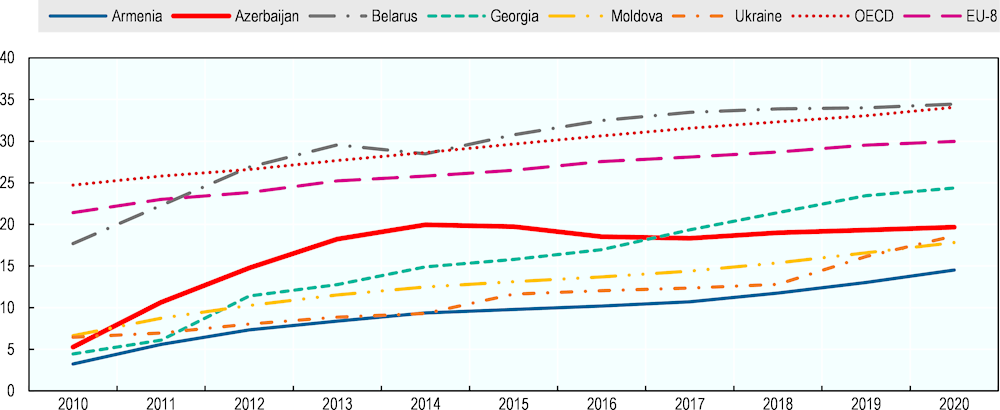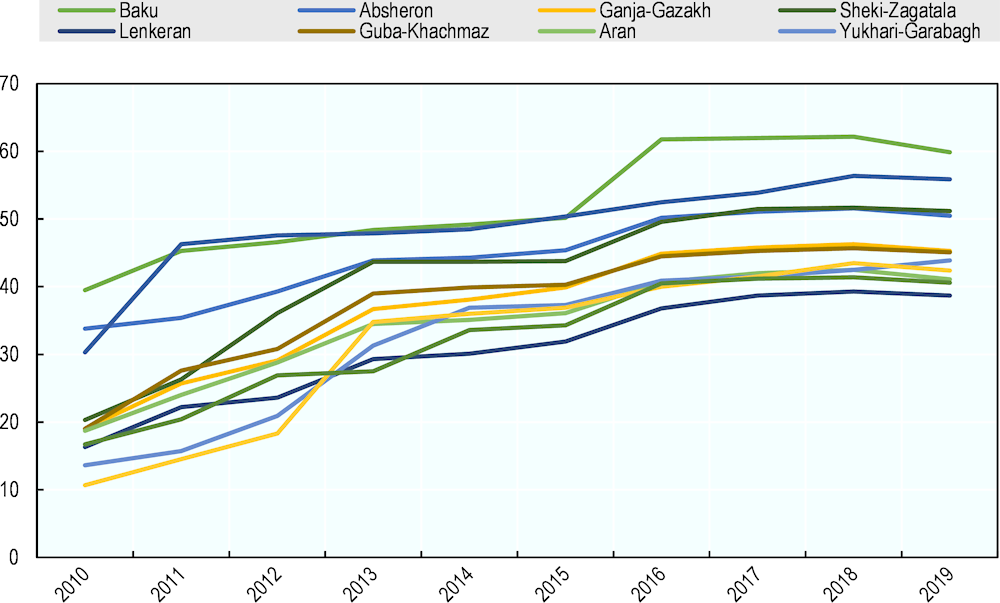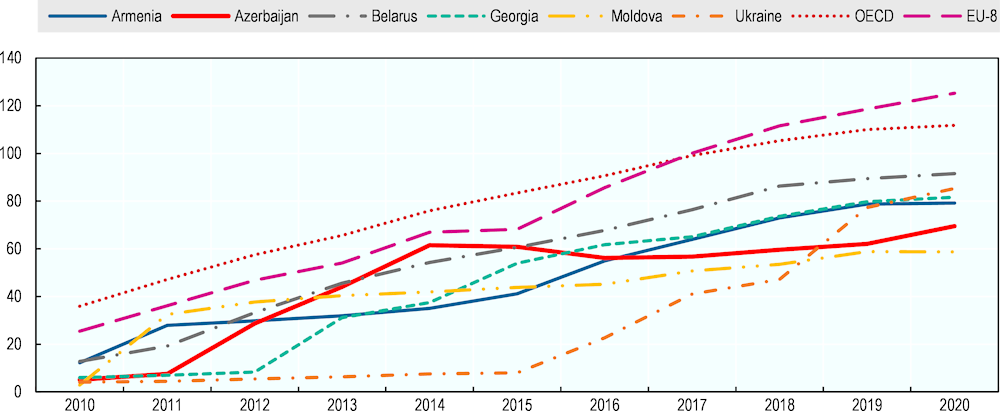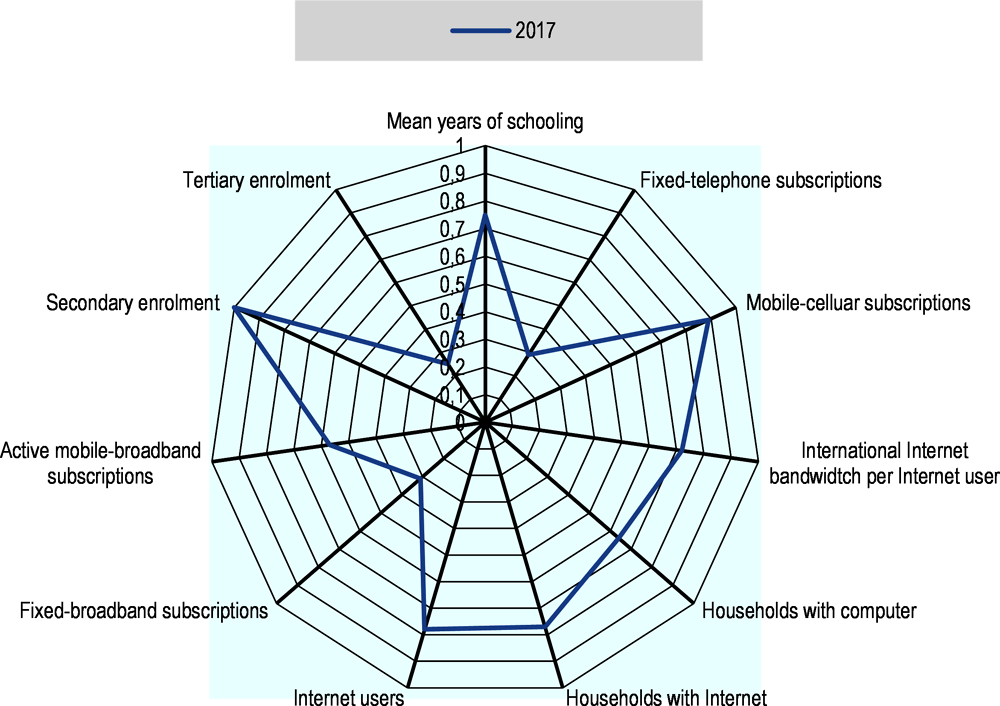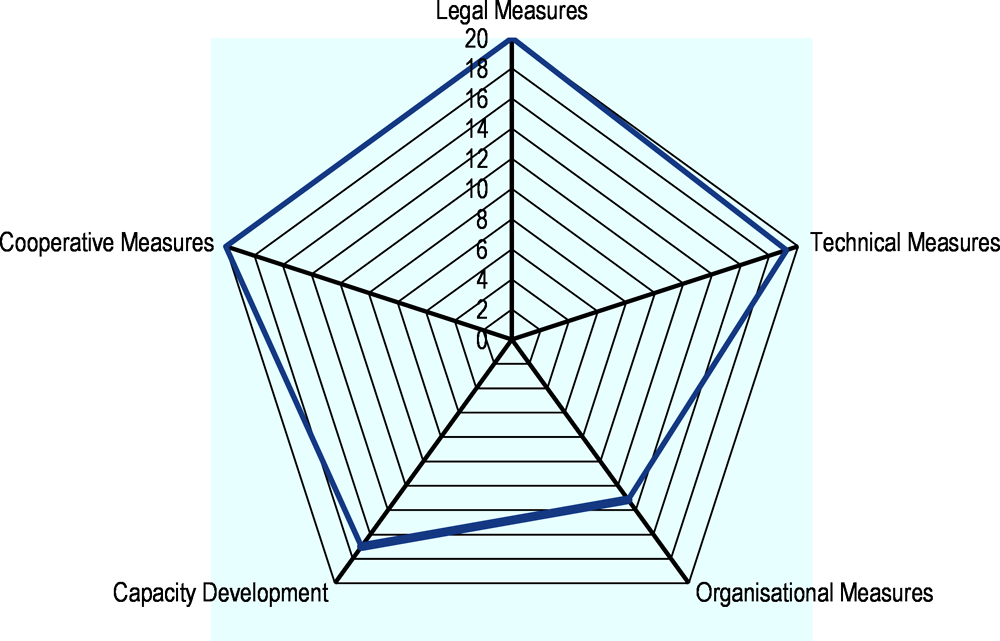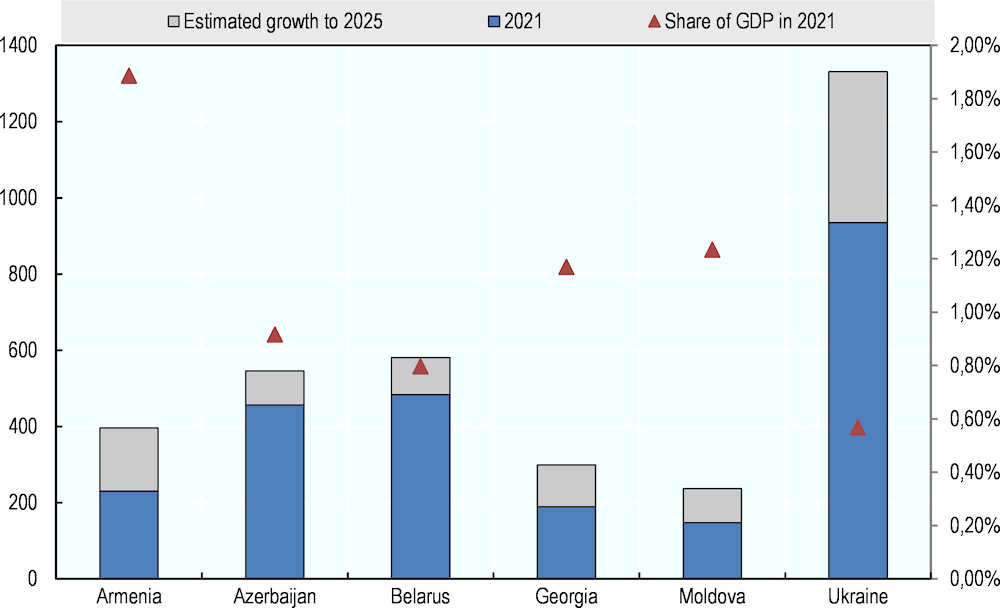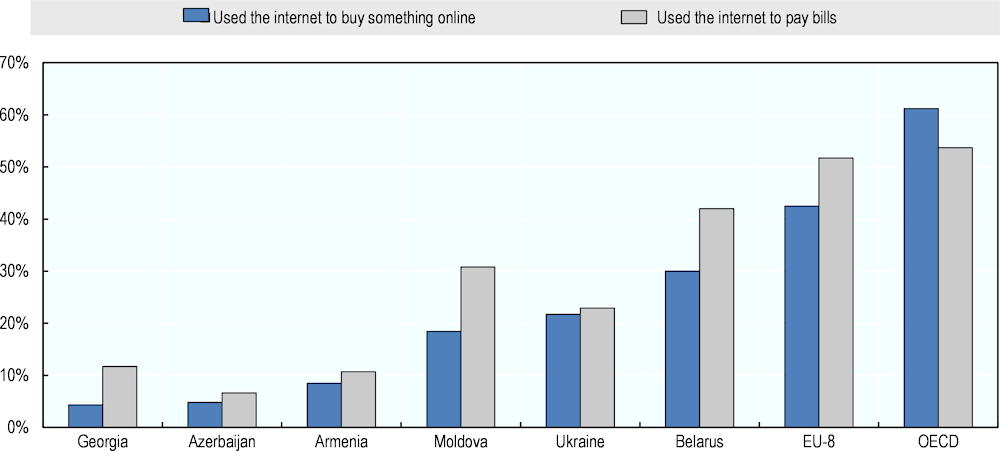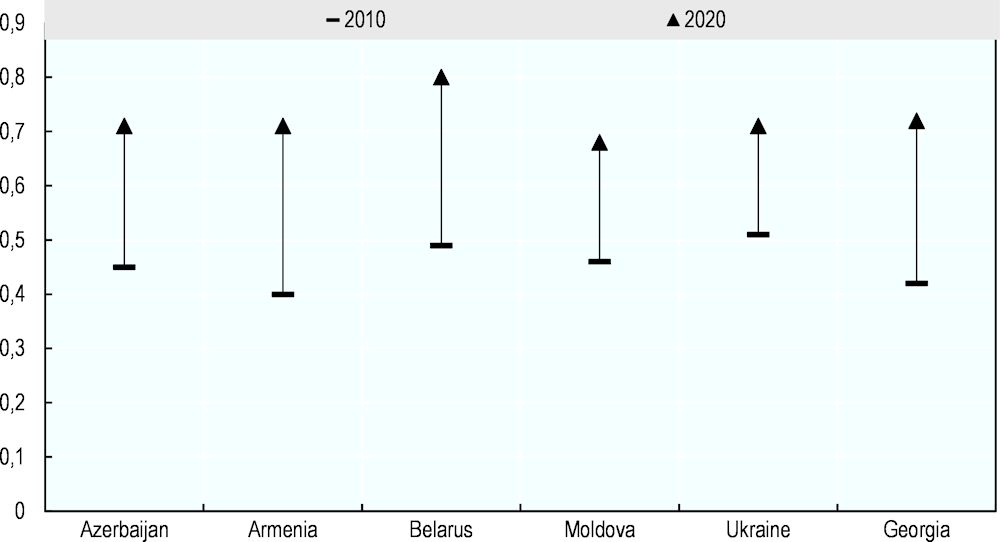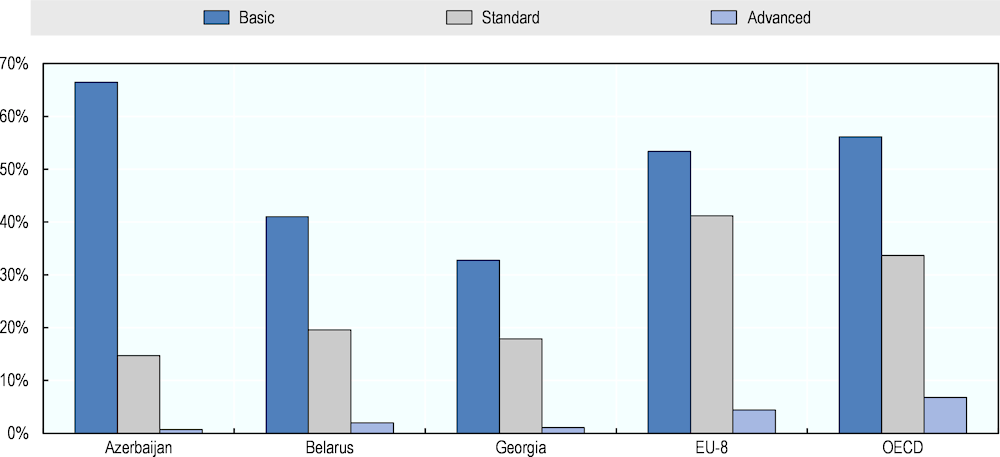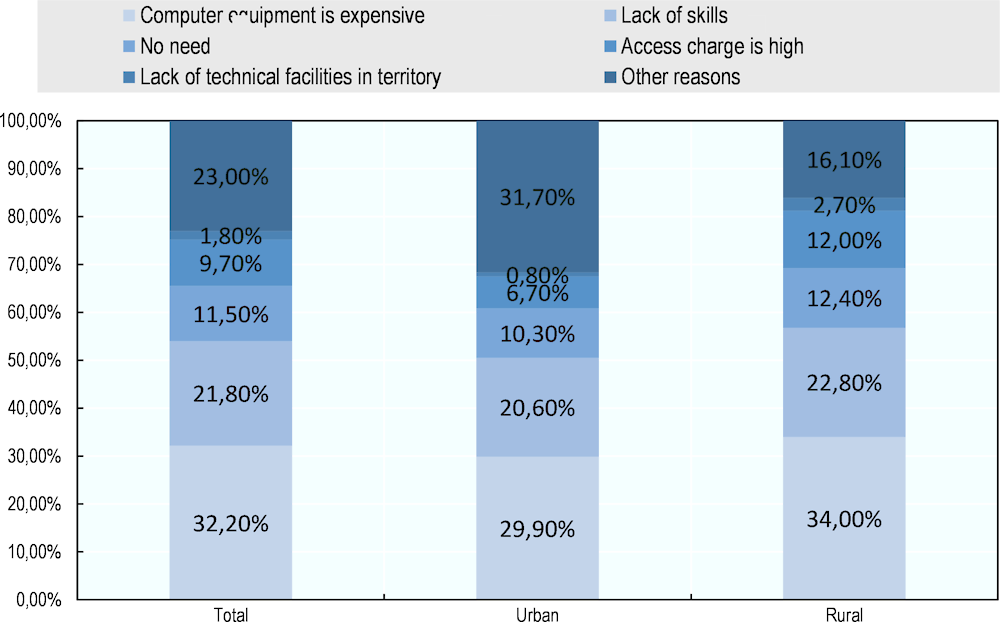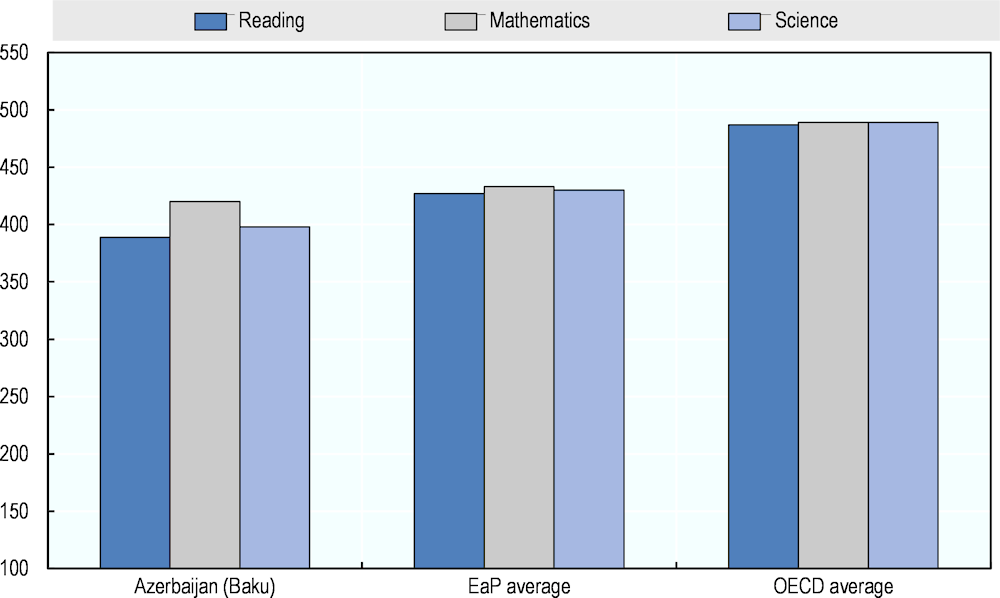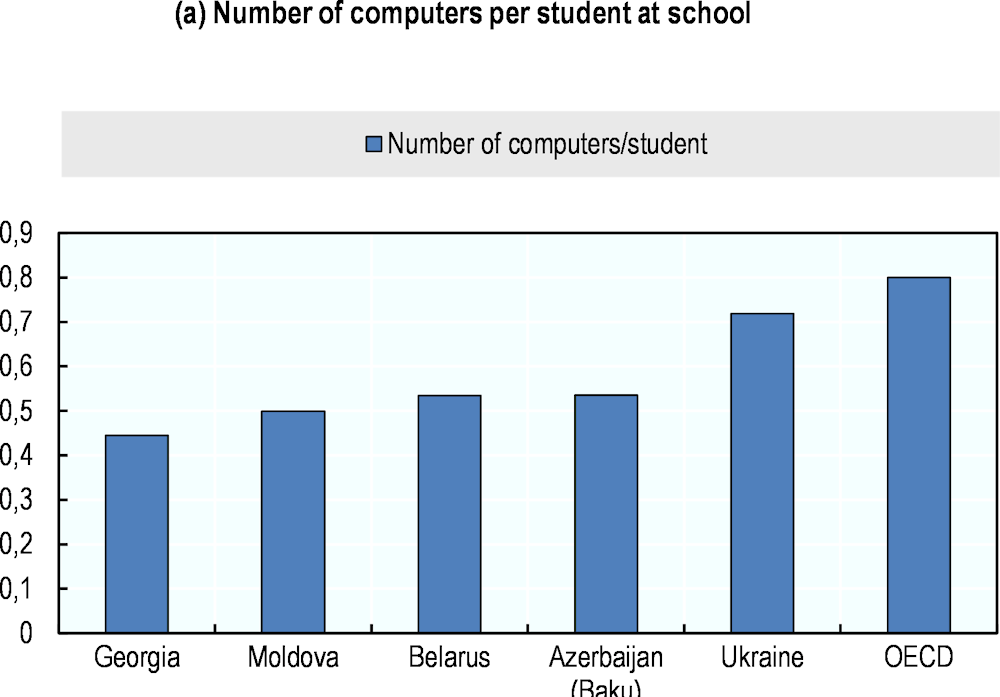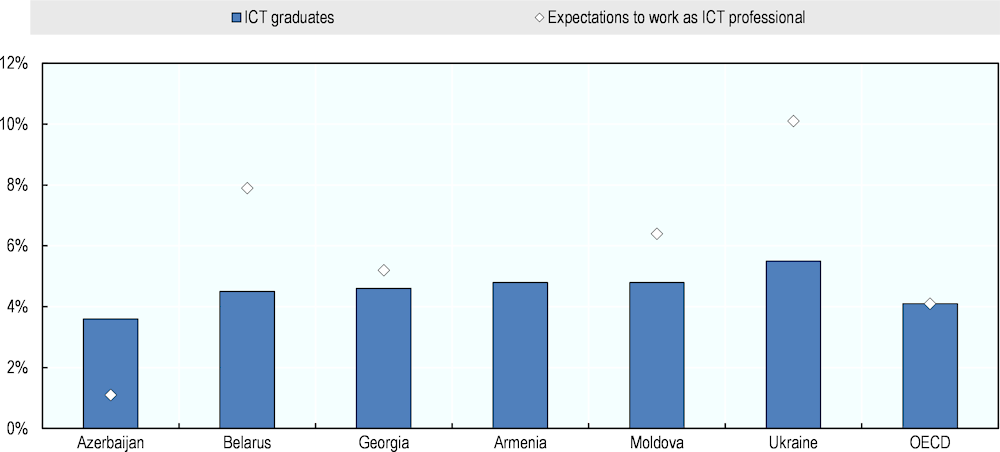Electronic signatures are essential for companies moving their operations online, allowing them to meet the legal and contractual requirements for maintaining integrity online without paperwork. Examples of e-signatures include simple photocopies or a physical signature, or more complex structures such as verified signatures, which use mathematical algorithms to establish the identity of the signatory. Functionally, e-signatures are recognised as equal to physical signatures (OECD, 2021[13]). The e-signature is a valuable digital tool for businesses and customers, and is considered one of the main attributes of a successful digital transformation. The use of e-signatures goes hand-in-hand with a robustly developed digital culture. In Azerbaijan, the Ministry of Digital Development and Transport is responsible for the implementation of e-signatures (E-Gov, 2021[29]).
In 2004, the government passed the Law on Digital Electronic Signature which required e-signatures in Azerbaijan to be certified by an organisation approved by the Ministry Digital Development and Transport. However, there are many challenges with certifications due to the low level of e-commerce penetration in the country. There is also low interest in innovative financial technologies, such as blockchain and cryptocurrencies. Digital identification exists based on SIM cards, which have become very useful for identifying those who access online government services (Asian Development Bank, 2019[26]).
In 2011, the National Certificate Services Centre of the Ministry of Digital Development and Transport was launched with the purpose to provide services to citizens, legal entities, entrepreneurs and civil servants. Registration centres were organised in major central post offices and branches in Baku city, and post offices in the country’s regions as well as through the E-İmza website (http://e-imza.az/).
Between 2011 and 2020, a total of 245 848 e-signature certificates were issued through the centre, to citizens, government agencies and legal entities. The majority of certificates were issued to government entities, while private citizens made up the smallest percentage of those having received e-signature certificates, indicating limited use of e-signature among entrepreneurs and the general population (National Certification Services Centre, 2018[30]).3
In addition, citizens are able to use Asan İmza (Mobile ID), which is a mobile identity card that can be used when using electronic services and digital signature verification. Asan İmza works as a SIM card for mobile phones and contains electronic certificates similar in function to identification cards, allowing users to perform all online activities. In order to use the service, citizens have to buy a special SIM card and use their mobile ID on a compatible website, or other devices for authentication and digital signature. The system is implemented according to Public Key Infrastructure (PKI) and launched by mobile operators in co-operation with the ASAN Certification Services Centre (ASXM).

